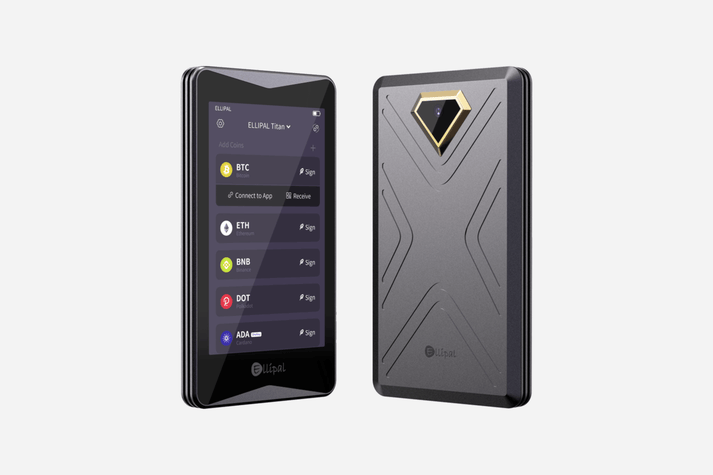Unlock the Secret to Safeguarding Your Crypto with the Perfect Cold Wallet!
In the rapidly evolving world of cryptocurrency, the importance of secure storage cannot be overstated. With the increasing popularity of digital assets, users are often drawn to the convenience of online wallets, but this convenience comes at a price. Online wallets are susceptible to hacking, phishing attacks, and other vulnerabilities that can lead to the loss of hard-earned cryptocurrency. This is where cold wallets come into play. A cold wallet, also known as a cold storage solution, provides a secure and offline method for storing cryptocurrencies, protecting them from online threats. In this article, we will explore the concept of cold wallets, their types, benefits, and tips for choosing the right one to safeguard your digital assets.

Understanding Cold Wallets
A cold wallet is a type of cryptocurrency wallet that is not connected to the internet, making it significantly less vulnerable to cyber attacks compared to hot wallets, which are online and constantly connected. Cold wallets typically come in two main forms: hardware wallets and paper wallets. Hardware wallets are physical devices, similar to USB drives, that securely store your private keys offline. On the other hand, paper wallets involve printing your private keys and public addresses on a physical piece of paper, which can be stored safely away from potential online threats. Each type serves the same fundamental purpose—keeping your cryptocurrencies secure while minimizing exposure to hacking and theft.
Types of Cold Wallets
When considering cold wallets, it’s essential to understand the different types available and their respective features. Hardware wallets are widely regarded for their user-friendliness and robust security measures. They often come equipped with encryption and two-factor authentication, adding an extra layer of protection. However, they can be more expensive than other options. On the other hand, paper wallets are completely free to create and serve as a secure method of storage, but they can be easily damaged or lost if not handled properly. The pros of hardware wallets include ease of use and strong security, while the cons can be their cost and reliance on physical security. Paper wallets, while free, require careful management to prevent physical loss. Understanding these nuances can help users make informed decisions based on their individual needs.
Why You Need a Cold Wallet
The security benefits of using a cold wallet for cryptocurrency storage are compelling. Cryptocurrencies are often targeted by cybercriminals, and common threats include malware, phishing scams, and exchange hacks. By storing your digital assets in a cold wallet, you effectively remove them from the reach of these online threats. For instance, a friend of mine once lost a significant amount of Bitcoin due to a phishing attack on their hot wallet. This harrowing experience drove home the importance of securing cryptocurrency in a cold wallet. Cold wallets not only protect your assets from theft but also provide peace of mind, knowing that your investments are safely stored offline.
How to Choose the Right Cold Wallet
Choosing the right cold wallet involves careful consideration of several factors. First, assess the security features offered by the wallet. Look for options that provide encryption, backup, and recovery capabilities. Additionally, ease of use is crucial; a wallet that is overly complicated can lead to mistakes during transactions. Compatibility with different cryptocurrencies is another factor to keep in mind, as some wallets support only specific coins. Lastly, consider your personal storage needs—whether you plan to store a small amount for daily transactions or a larger amount for long-term investment. Taking the time to evaluate these factors will ensure you select a cold wallet that best suits your requirements.
Where to Purchase Cold Wallets
When it comes to purchasing cold wallets, you have a variety of options. Online retailers often provide a wide selection of cold wallets, allowing you to compare features and prices. However, it’s crucial to buy from reputable sources to avoid counterfeit products. Physical stores, especially those specializing in technology or cryptocurrencies, can also be a good option as they allow you to examine the product before purchase. Regardless of where you choose to buy, always verify the authenticity of the wallet and check for customer reviews to ensure you are making a safe investment in your cryptocurrency security.
Securing Your Crypto Assets: The Importance of Cold Wallets
In summary, cold wallets are an essential tool for anyone serious about securing their cryptocurrency assets. By understanding the different types of cold wallets, their benefits, and how to choose the right one, you can significantly enhance the security of your digital investments. The risks associated with online wallets are real, and transitioning to a cold wallet can offer the protection your assets deserve. Take the proactive step towards safeguarding your cryptocurrency by selecting and purchasing a cold wallet today. Your future self will thank you!






Comments